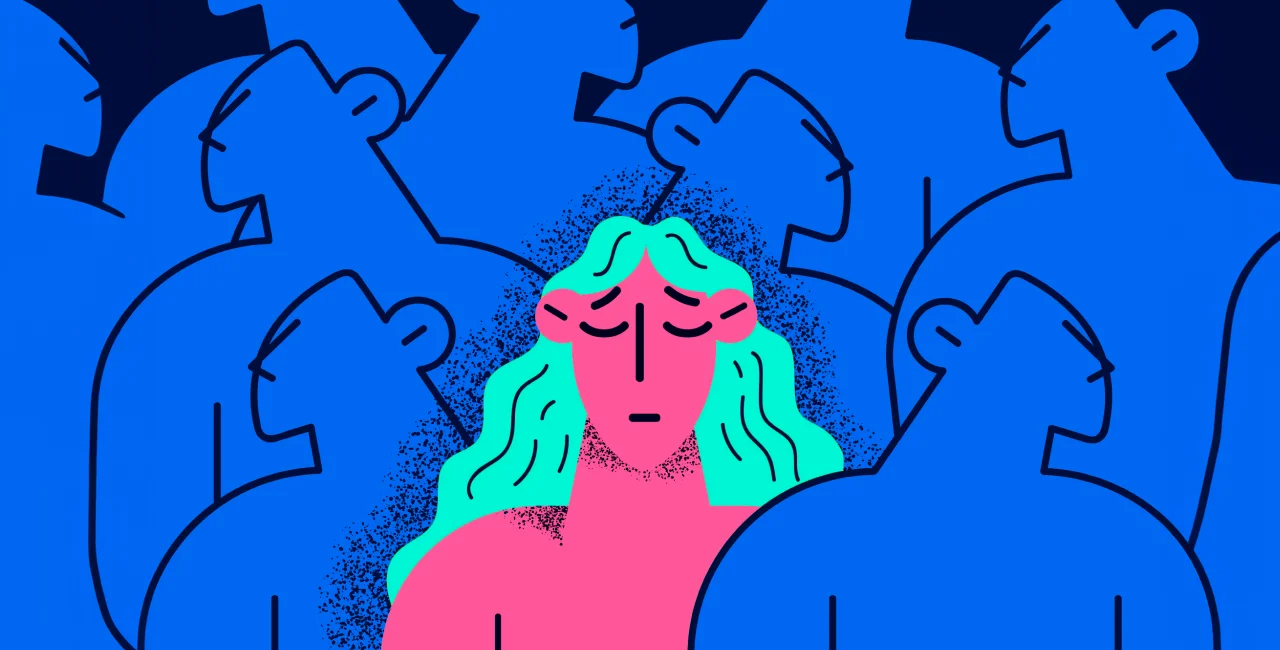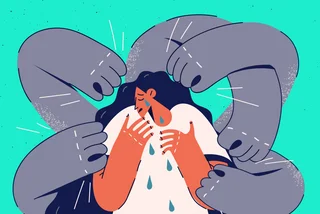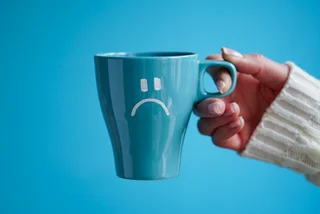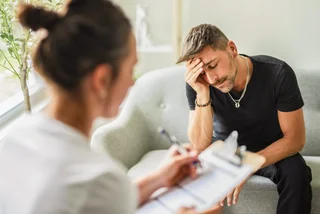Today, Jan. 15, marks Blue Monday – the third Monday of 2024 amid bitterly cold January is said to be the most depressing day of the year. Almost everybody goes through mental health problems, and foreigners in Czechia are no exception. We explore ways that expats in Czechia can navigate potential language and administrative barriers to ensure they get the help they need.
Finding help is not always easy
Around 700,000 people in Czechia – or 6.4 percent of the population – suffer from a form of depression. With a well-documented shortage of mental health practitioners and long waiting times, finding professional mental health support in the country can be a daunting ask.
PARTNER ARTICLE
Expats.cz reached out to Amanda Mataija, the chief executive and founder of Prague-based foreigner-support center Prague Integration, to get her views and advice on the mental-health support available in Czechia.
Mataija tells us that VZP, the largest state health insurer nationwide, covers both care from psychiatrists and psychologists. However, it has “enormous waiting lists that can often last for two years.”
If you don’t speak Czech, the situation is even more dire – she says there is a lack of English-speaking therapists in Prague and nationwide. Although the situation is improving, she says, with more interest in the field and more English-speaking therapists compared with the past, expats in need of therapy still often struggle to find appropriate care.
Czechia has a shortage of psychiatrists and psychologists (below the EU average per person), and – according to Mataija – offers relatively low pay for therapists in the public sector. “The situation is even worse in child psychiatry,” Mataija comments. This pushes many people to go privately, where costs can easily exceed CZK 2,000 per hour.
What to do if you’re feeling blue
Prioritize self-care and connect with others
What can you do if you’re feeling the winter blues? Mataija’s team of psychologists recommends, foremost, going at your own pace. “Listen to your body, take time for self-care. It’s important to dedicate space and time for your own needs,” experts at Prague Intergration say. Mataija also recommends connecting with family and friends. “It’s important to have a mental health professional by your side, just as people seek out doctors and dentists when they are unwell,” she notes.
WELLBEING TIPS FOR EXPATS
- Seek connections, and reach out to family and friends
- Ask for advice (don't be afraid to do so, too)
- Get enough sleep and exercise
- Treat your mind like your body
- Go offline, turn off electronic distractions
- Eat well, with plenty of nutrious foods
- Avoid alcohol, smoking, and drugs
- Seek out English-speaking resources online
By the William Russell company, an expert health insurer
Mataija also tells Expats.cz that, if you are facing mental health challenges, you should not be ashamed to ask for help, as this is the first step to overcoming your problems. “There is still a lot of stigma about seeking mental health support in Czechia,” Mataija regrettably notes, although things are thankfully moving in the right direction.
Expats.cz also reached out to Steven Hughes, a Prague-based neuropsychologist. He notes that "the fastest way to beat the blues is to create some new experiences, get some exercise, meet new people, or begin to develop a new skill." He emphasizes the importance of taking action and exploring new things to beat away the blues.
Seek professional help if needed
And how do you know if you’re only transiently feeling sad or if you have a more serious problem? “When your low mood persistently disrupts your day-to-day life and activities, and affects your relationships, you should reach out for help,” Mataija tells Expats.cz.
She recommends people to first start exploring talking therapy, and then seek further opinions and guidance on medicinal treatment from a specialist.
Hughes says that patients struggling with mental health issues can theoretically see both psychiatrists and psychologists. "It is not uncommon for individuals experiencing psychological disturbance to have a psychiatrist who prescribes and monitors their medication through infrequent, short appointments, while also seeing a psychologist on a weekly basis," he notes.
Hughes also underlines the importance of professional support in the form of cognitive behavioral therapy (CBT) – in his view, there is a clear shortage of English-speaking CBT providers in the Czech capital. He says that good talking therapy includes a thorough diagnostic assessment, a set of desired goals and outcomes, and a clear treatment plan.
Finding specialists
Which type of professional to visit depends on your needs. Psychologists usually hold a Ph.D. in psychology and typically undergo an additional two to three years of specialized training in specific psychotherapeutic approaches like cognitive behavioral analysis, Gestalt, or psychoanalysis, Prague Integration describes.
In contrast, psychiatrists have a medical degree and – unlike psychologists or counselors – are authorized to prescribe medication. It is crucial for individuals experiencing depression, anxiety, or other mood disorders to seek out a psychiatrist if medical treatment is deemed necessary, Mataija says.
Should I find a therapist or counselor?
“Therapy” and “counseling” are frequently used interchangeably, with distinctions often relying on the practitioner. Broadly speaking, counseling tends to focus on resolving recent life issues, whereas therapy delves deeper and extends over a longer duration, aiming to address overall mental health and well-being.
Where to get help
If you’re feeling low in Czechia and are looking for support, there are a variety of options to consider. Czechia’s largest health insurer VZP can provide up to CZK 5,000 in support for psychosocial support (this includes therapy and counseling) with accredited and collaborating therapists (you can find them here). The maximum allowance per session is CZK 500, and the maximum amount of sessions is 10.
People with health insurance in Czechia can also access psychologists or psychiatrists for free with a doctor’s referral. According to governmental regulation, insurance companies are “legally obliged to ensure the availability of health services” for their insured clients – this includes psychologists.
Speaking to Czech news site CNN Prima, Czech Psychological Chamber president Irena Wagnerová advises people: "If psychologists in the area tell you that they are full and are not accepting new clients, then you should immediately contact your health insurance company in writing and ask for a remedy.”
Other therapeutic methods
When it comes to a new, alternative treatment in its infancy – microdosing on psychedelics – Mataija tells us: "There's been remarkable progress in the research on psychedelics and mental health, but they won't replace traditional treatments.” She also emphasized that they should be used if no other treatment works and must be closely supervised by a clinical psychiatrist.
Hughes tells us that microdosing "will revolutionize psychiatric treatment," and one day "will become a standard treatment option," but research on it is still in its early stages and widespread usage will not occur for many years yet. He reminds readers that psychedelics are still illegal and that people should stay far away from them.
Apps, podcasts, and books
Meditation, mindfulness, apps (Mataija recommends Headspace), and podcasts are also sound methods of coping with depression and anxiety during difficult times. Mataija specifically recommends the "Where Should We Begin" podcast by psychotherapist Esther Perel and "Psychology Unplugged" by psychologist Corey Nigro.
Books can also help. Mataija pinpoints "Why has nobody told me this before?" by Julie Smith is full of practical techniques to boost mental health in topics such as anxiety, depression, grief, and work stress. ''Maybe You Should Talk to Someone'' by Lori Gottlie is also a worthy read according to Mataija: it follows the lives of four patients in Gottlie's psychotherapy practice and also offers practical advice.
- Prague Integration offers individual counselling sessions for expats in Prague.
- #delamcomuzu is a project offering mental health support to expats.
- Visit our directory of mental health experts to book an online therapy session.
- InBáze.cz is a Czechia-based resource offering psychological counseling in English.
- VZP has a list of accredited therapists on its website (displayed in Czech only), and you can search for psychologists on the PVZP website in English.
- Charles University offers individual or group psychological counseling in English free for full-time students at the university.
- terap.io has several online therapy sessions for English speakers.
- Apps such as Headspace, Hedepy, and VOS.health are all popular resources offering mental health support.












 Reading time: 6 minutes
Reading time: 6 minutes 

























